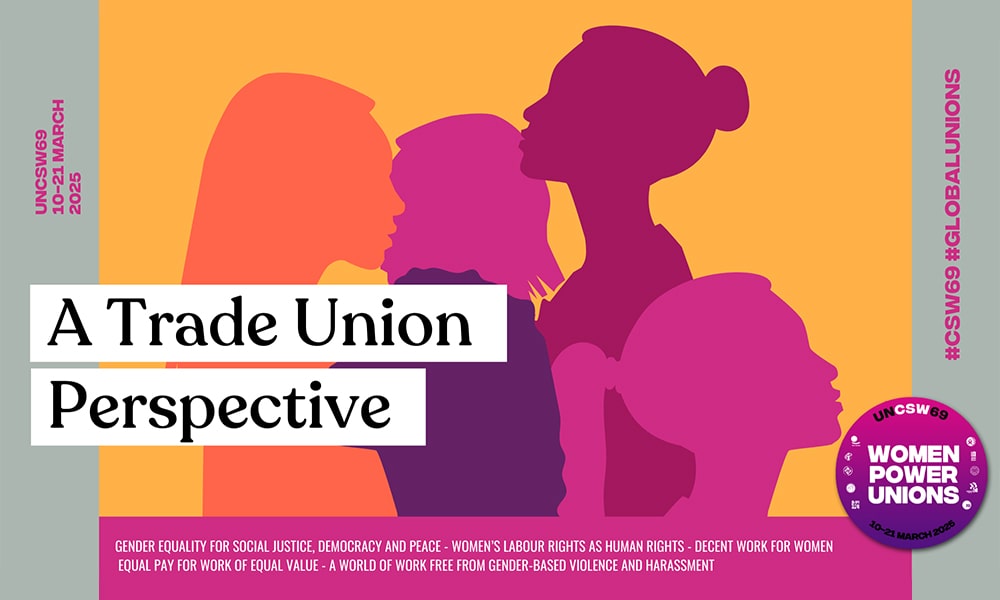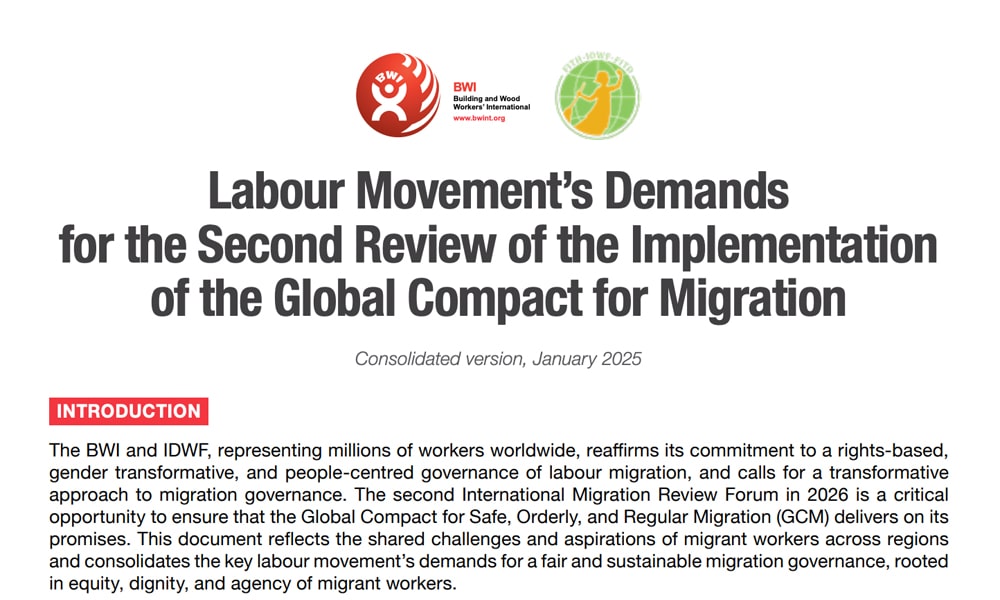In the era of speed, technological progress is transforming the world of work in many ways, from changing the types of jobs available to the way work is performed. The spotlight on technology continues this year, as the United Nations holds the Commission on the Status of Women UNCSW67 discusses the priority theme “Innovation and technological change, and education in the digital age for achieving gender equality and the empowerment of all women and girls.” The optimistic outlook positions that improved access to technology for women workers would improve their work-conditions. But that is a one-sided story, and one that has uneven resonance for domestic workers.
While the rise of automation, artificial intelligence, and digital technologies is disrupting traditional industries, creating new ones, and shifting the skills required for employment, technological progress is not an equitable phenomenon. It is only as the pandemic hit sectors that are traditionally understood as “productive” that global attention turned to protections associated with the private household, with topics such as remote work and the digital divide becoming more prominent. Technological changes leave many sectors largely untouched, or even deteriorating in protection. For example, the gig economy, often rumored to offer greater flexibility and autonomy for workers, poses challenges in terms of job security and labor protections, as it induces displacement and further alienation from the ownership of one’s own labor, especially as these platforms are not usually owned by domestic workers. Therefore, it is crucial to ensure that technological progress is accompanied by policies and practices that ensure social protection and decent work.
Several domestic worker organizations have also created income generating activities that are governed by an online interface, some have created platforms owned by the workers themselves to match workers with employers and provide services. Nonetheless, in a landscape that structurally disadvantages domestic workers, there is a glass ceiling to what organizing through technology can achieve for the sector. Our position is simple: technology can empower women and girls, especially domestic workers, only insofar as standard and traditional labor protections already exist for them. For technology to become a tool for domestic workers’ liberation, domestic workers’ voices must be central to its development and to its ownership. The International Domestic Workers Federation calls for:
Credible Facilitation for Domestic Workers’ Access to Justice
Unlike technology, the world of work has not rapidly changed for domestic workers. Instead, it remains informal and unprotected at large; an issue that access to technology itself does not remedy. We have seen instances where technology created for handling complaint mechanisms has simply replaced a human flawed bureaucracy with an additional barrier in the form of a digital interface, further alienating workers from accessing justice. In other cases, when the online complaint or protection mechanism has been a credible effort in itself, it was still inaccessible to workers without smartphones, with low digital literacy, and to workers in rural areas who lack internet access.
Safety from Online Gender-Based Violence and Harassment
Domestic workers are largely from Black, Indigenous, People of Color (BIPOC) communities in the Global South. They are often heads of families and the sole provider. Many of them are migrants. They face social, economic, and political marginalization in society. This marginalization is amplified online, where they may be more susceptible to online violence and harassment. They are more likely to experience gender-based violence online, to be used to intimidate, control, and harass women workers. Illicit recruitment agencies and individuals have used the online space, including social media platforms, to put out fake advertisements as they promise high-paying jobs or opportunities to work abroad, but in reality, they are a front for trafficking. Online marketplaces, such as those for freelance work or gig economy jobs, can be used to exploit workers. Traffickers pose as legitimate employers or clients, offering work that pays very little or that requires workers to work long hours without breaks.
Overall, the intersection of various forms of oppression and marginalization can make domestic workers particularly vulnerable to online violence and harassment, amounting to trafficking. It is important to recognize and address these issues in order to protect the rights and safety of all workers, including domestic workers.
Domestic workers’ right to organize, online and offline:
Moving disparity to an online space does not put an end to it, but hides it in a virtual realm. A quick investigation into the existing gig-economy endeavors for domestic workers show multiple associated risks, ranging from exploitation by online platforms that set low wages and poor working conditions, to facing abuse and harassment from employers and clients who use the platform to hire them. Domestic workers who work through online platforms may be subcontracted and not receive full-wages, in a sector that already lacks minimum wage protections. Platform dependence also puts workers at risk of losing livelihoods if policies change or the platform shuts down announcing bankruptcy. Domestic workers may also be subject to discrimination and exclusion based on race, gender, or nationality, in addition to the structural barriers that would prevent them from being able to access digital tools altogether. They may be subjected to surveillance and policing, by the government, in case of undocumented status, and by employers in employer-tied visa regimes.
It is essential to address these risks by advocating for the rights of domestic workers and implementing policies that protect their interests and rights. This includes legal protections and benefits, regulating online platforms to ensure fair working conditions, and bridging the digital divide to ensure equal access to technology and digital resources.
However, and no matter how inaccessible technology is for the sector, domestic workers are no strangers to performing miracles.
All over the world, they have utilized technology. During the pandemic, IDWF supported some affiliates with access to computers, internet, and other digital devices, so they can continue organizing. Domestic workers connected with other workers, accessed essential services, advocated for their rights, and outreached to deliver relief and support for fellow workers. In migration contexts, domestic workers from countries of origin and destination made contact and supported one another for the rescue and reintegration of various workers.
The use of technology, therefore, is not inherently good or bad, or even neutral. Depending on how it is used, it can enshrine and preserve existing power imbalances, or disrupt them. Much existing technological innovation seeks to optimize efficiency and exploitation, rather than optimizing for equity and dignity. It treats workers as profit, not as people.
On this Women’s Day and at the backdrop of the UNCSW67, once again, our position is clear: No technological progress can replace decent work provisions and normative standards for women workers.
Statement in:






